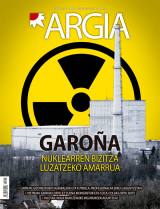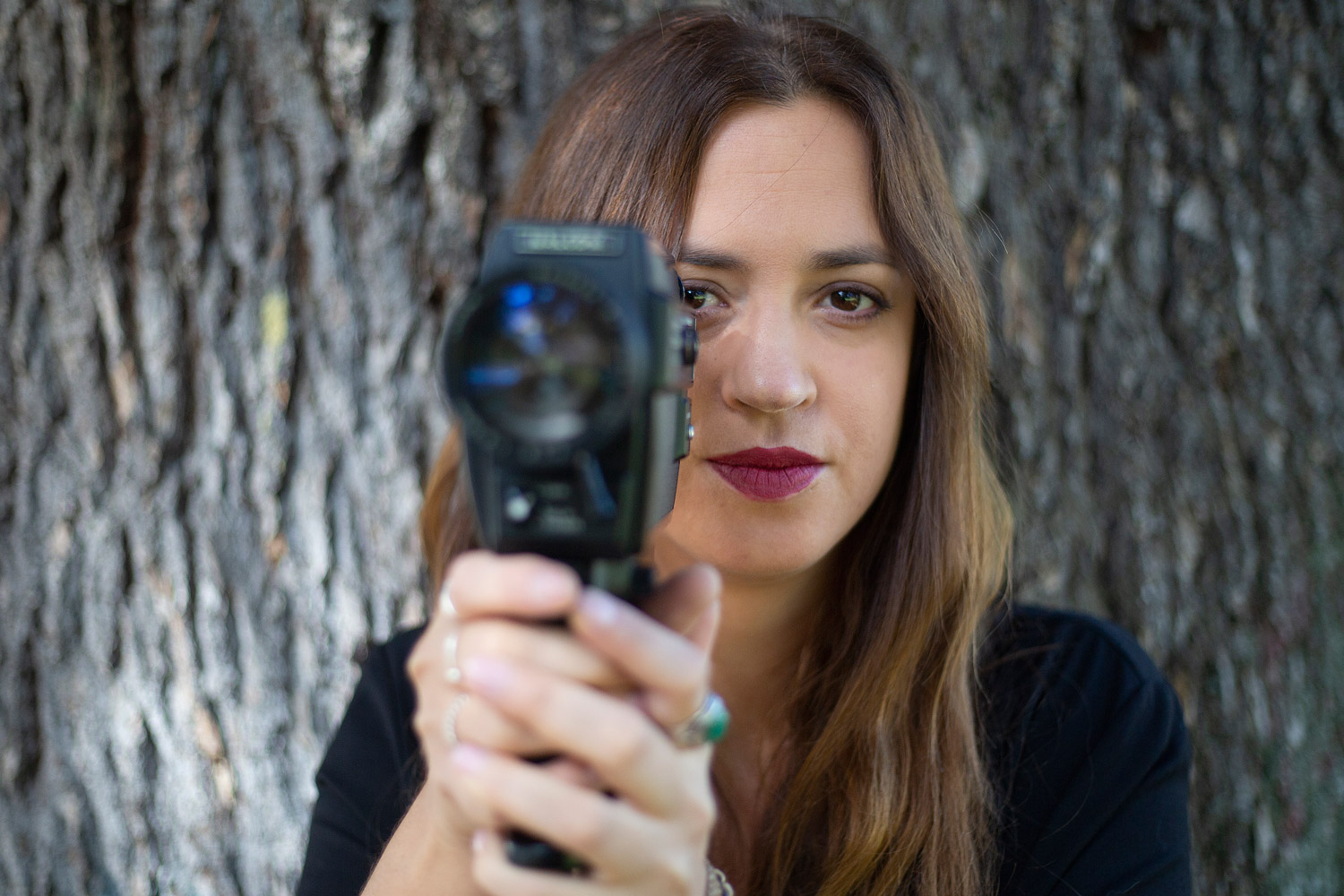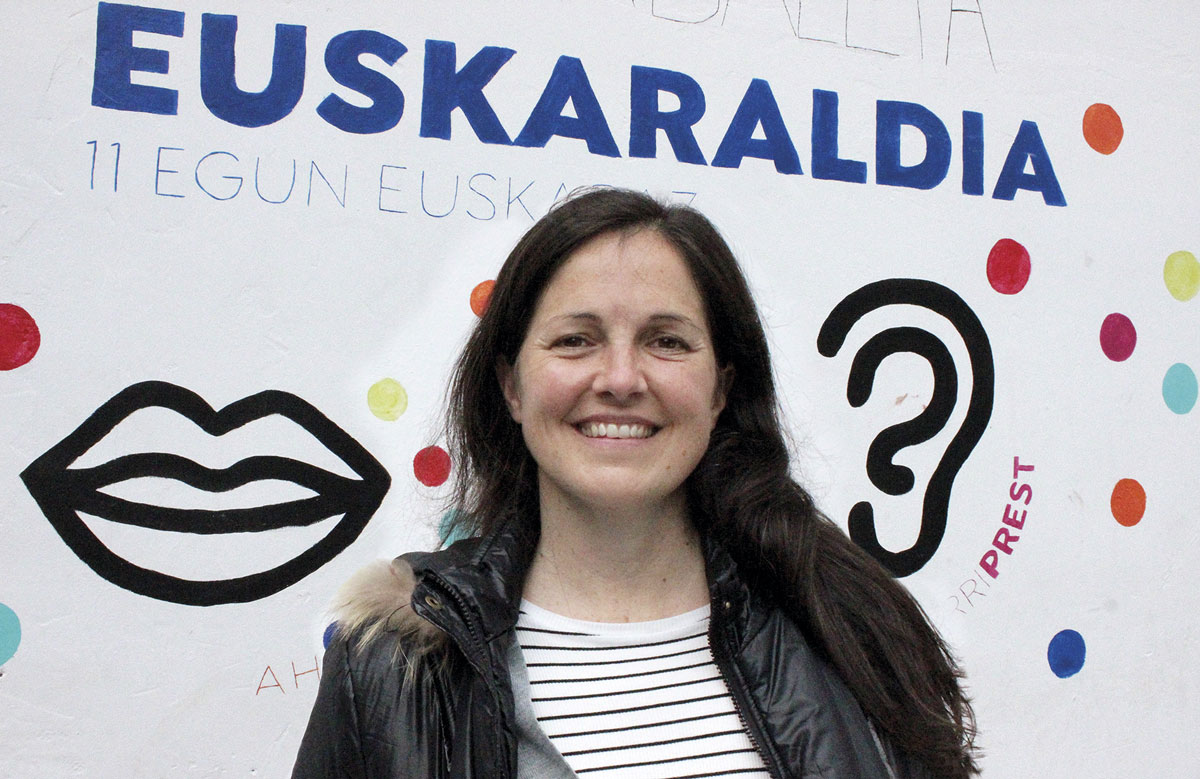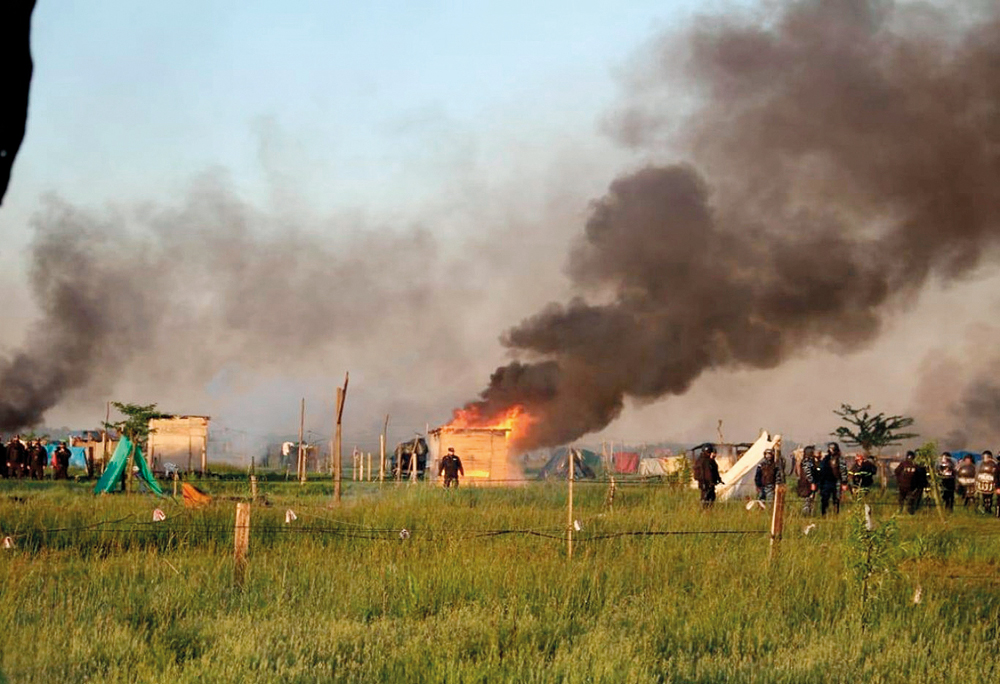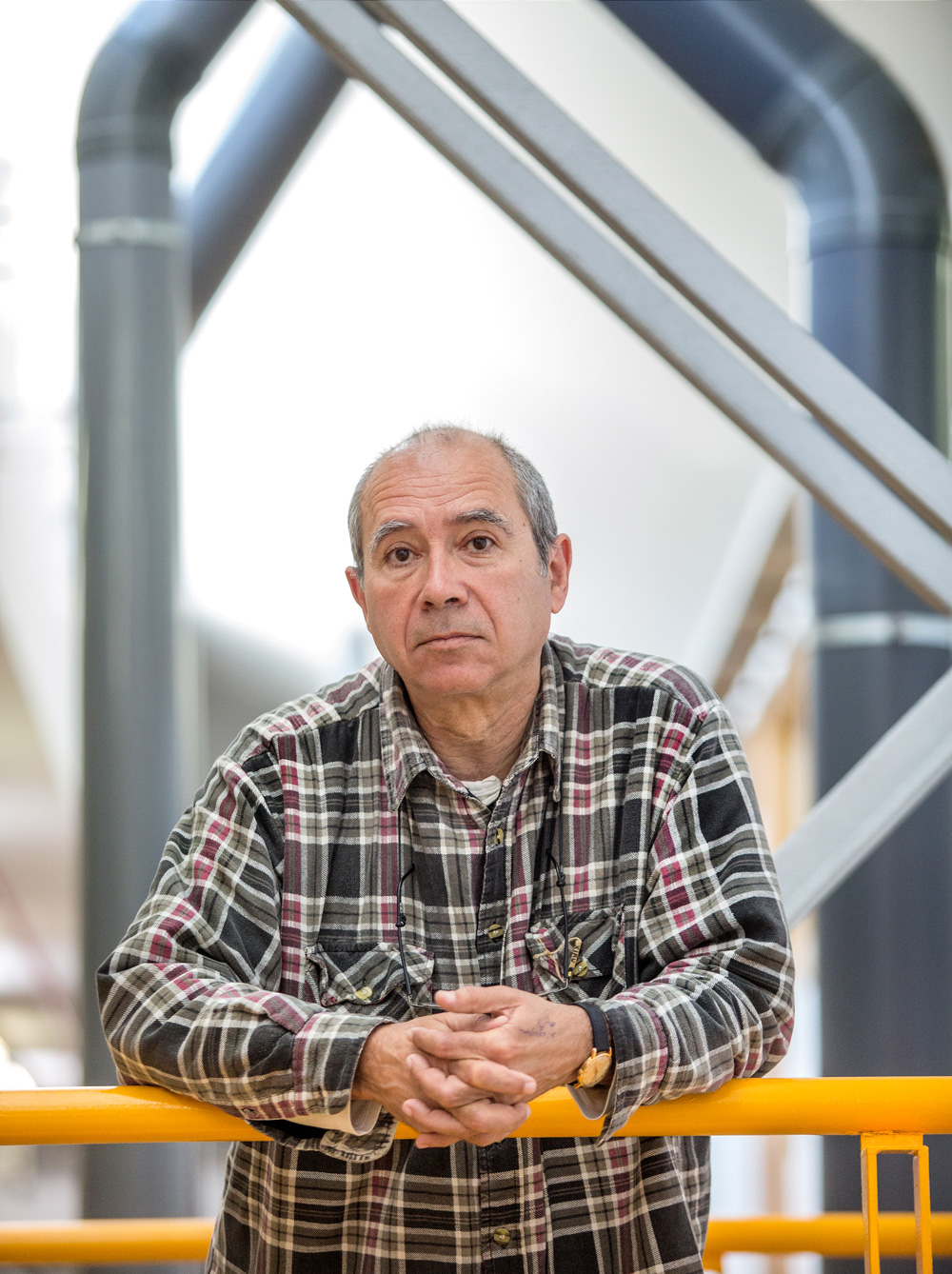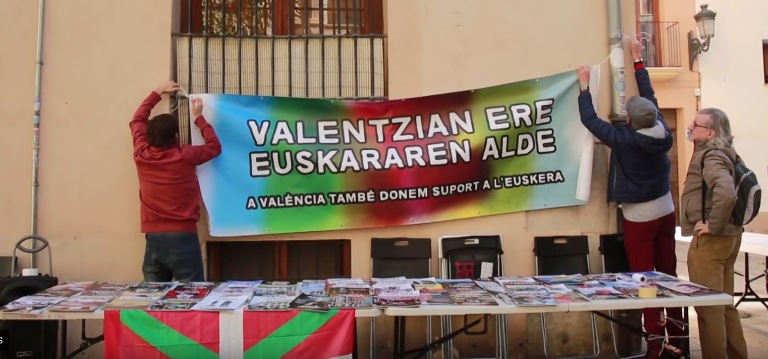"In Mexico I've always had very grateful people."
- Amezketarra is a professor of Euskera in Mexico City, in universities and in the Basque Country Etxea. But it's not the anecdote of a year as a young student, it's the anecdote of a woman who has taken root in it.
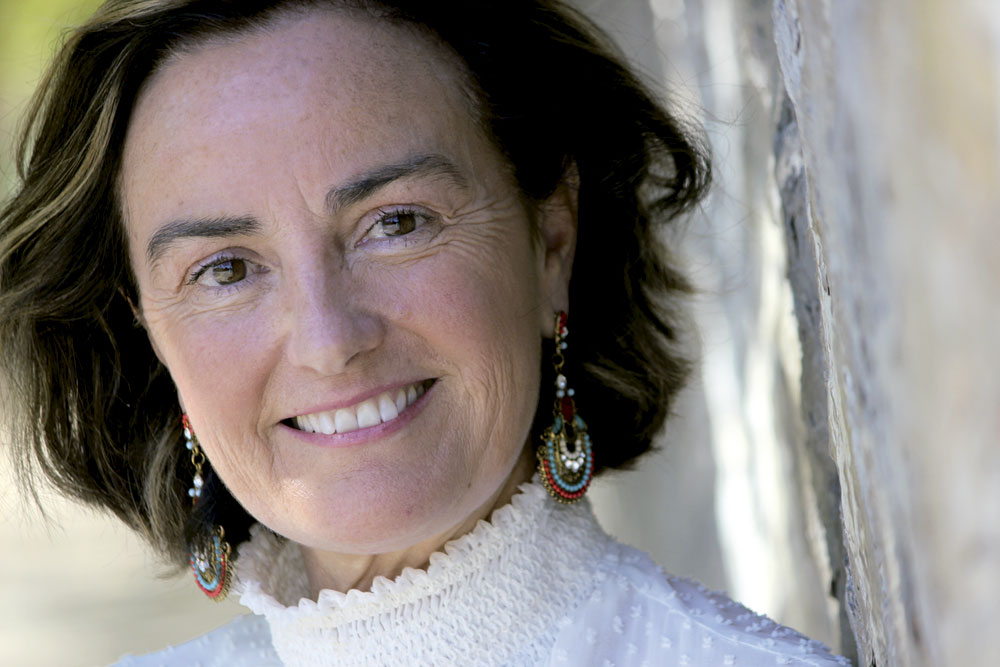
Ikastola-umea da. Amezketan, auzoko ganbaran ekin zion ikastolari, eta elizako sakristia ere ezagutu zuen Ordiziako ikastolara baino lehen. Euskara irakasle izan zen Errenteriako udal euskaltegian Mexikora baino lehen. Gaur egun, euskara eta euskal kultura irakasle da Mexiko DF-ko UNAM unibertsitatean.
What does amezketarra do in Mexico?
Who can!... Do you want me to start counting from the start?
I would.
I was an Euskera professor. I had been working fourteen or fifteen years, most of which I did in the municipal Euskaltegi of Orereta – one year in Pasaia –, I did it at ease, but I was also going to be 40 years old, and year after year, year after year, there is no news. In the Basque Country there were also students, down, and in order to keep the teachers, instead, there were no students. Hence also the concern. And finally, the friends of the crew are part of the family. Once, a Sunday, twelve people having lunch in society, and one day, I just stayed at the table. One to take care of the child, another to help the bathroom... they dispersed me. It seemed to me that everyone had followed his path and that I was alone. Yes, I had my family, my parents, my siblings, my nephews, but in one way, alone. And then, in the hallway of the Euskaltegi, one: “Have you heard? They have made an appeal to teach Basque abroad, in Mexico, in Warsaw…”. I remembered it and signed up, sent my resume and did what I had to do. Time passed and nothing happened. Six months later, I got a call. A quote from an interview. Among the elect, I could choose my destiny.
And you to Mexico.
I didn't need to reflect. To Mexico! It made me much more attractive than Warsaw. Then they said to me, “But don’t retreat now. On more than one occasion people have repented. Sign up, say you’ve been elected and not, you’re not going.” “On that quiet side, yes, I will go.” I went in September of 2005. The idea was one year, but I've done eleven.
He studied at the University of Mexico.
I thought there was going to be a meeting, representatives of the university, of the Basque Government, myself… In the course of learning in Euskera they would be enrolled, some student would wait for me… but no. Nothing. I had to start myself. I had a picture of Txindoki, of La Concha de Donostia… to expand them, I wrote the notes that corresponded to my course by hand: where I enrolled, the classroom days, the hours… I took the afixes I made and put them in college. And an unprecedented success, the crowd took over him. One hundredth of the number of pupils.
You did it on your own.
Yes, in Mexico I learned then what things are like. I remember the photos I used. Then one student said to me: “Yeah, I peeled off one of those pictures you put and I have it at home, in the room.”
 Always ask the question: who signed up, who has an interest in learning Basque in Mexico?
Always ask the question: who signed up, who has an interest in learning Basque in Mexico?
I thought most students would be of Basque origin, descendants of those who had to go from here, but the reality of the university was not that. One in ten had its origin here. Otherwise, there was everything. I remember someone telling me that I had a Basque grandmother, that I had an Alzheimer's, and that she came back to the Basque at the time. That grandson wanted to recover the Basque language, even if to some extent, to say a few words to the grandmother in Euskera and, if possible, to understand her. That moved me. Many people signed up for the music.
For music?
Yes, Fermin's music.
Fermin Muguruza?
Yes, Fermin Muguruza is there as God. They also knew other groups here that I didn't know, or knew about them a lot more than I did. One told me that he wanted to be able to read in Basque. There were curious reasons for that. One of them told me that his father had taken him a shepherd dog in Madrid, that he was beginning to look and that he was a “Basque shepherd dog”, and that he had enrolled in the course of Euskera because he wanted to address him to the dog in Euskera. Another one, the eccentric, came because he wanted to learn Japanese cartoon songs. “But that’s not Basque!” I said: “Ah, isn’t it Basque?” Another said he wanted to meet European aborigines. Like that.
You started from scratch.
The classes had to be open and free, that is, it was a course for college students, but we left some free spaces for anyone I wanted. Nine out of ten places would correspond to students, professors or workers of the Autonomous University of Mexico, and one to people outside it. And in these places, most were of Basque origin.
Did you join the Basque Country of Mexico City?
No, because Euskal etxea also offered Euskera classes, but there he was also a professor. In both. The distances are large there and, although not large, traffic is an incalculable obstacle. I have twelve kilometers from college to home, that is, an hour and a half. And another hour and a half to come back. Three hours on the road to give four hours of class. Fatigue is great. Here's a luxury. Here most of them eat at home. There you don't know about that.
What does the Basque Country of the capital do?
Since I left, I've seen a big change. Then there were more people, old and young. Young people, young fathers and mothers, young boys and girls approaching. These children have known the Etxea Basque – at least, they have known it – and it is possible that from there follow him, but they will have to decide that, go to the Etxea Basque, not go. Today, however, there are hardly any children in the Basque Country. The Basque Country is about 110 years old, and since then the situation has changed a lot, surely, because I have been in Mexico for ten years, and I have seen many changes in the Basque Country there. Why? Also globalization. There is currently no nostalgia, secondly, they are of the third generation, Mexicans, and if you will, they will come to Euskal Herria throughout the summer. There they live to their fullest in their day-to-day work.
No forces to go to Euskal etxea.
In addition to working hours, it is necessary to take into account those between home and work and home. And without Euskal Etxea, they have a lot of leisure opportunities. I've seen a kind of decline in the Basque Country. Maybe they'll turn it around. If you don't give it, it's why. It can be for good. Who knows?
“There were curious reasons to learn Basque. One said he wanted to meet European aborigines.”
How did it adapt to life in Mexico?
Fifteen days after I arrived, I went to the Basque Country. Presenting me, and if I could do anything to help me, I was there. They, for their part, were glad that they had not had teachers in Euskera for a long time, that they were also looking for someone, if only to start doing something with the children, on Saturdays in the afternoon. I settled, and there I started. Week after party, time had done it all. And through those classes, I made friends. Meanwhile, he only freed on Sunday, and picked up the house, seeing a market, a walk… I remember one exit, the first one, with Miguel Arrangi and Mikel Plazaola, which we did in all the Saints. Great celebration there. At night, we went to the graveyard and gave the flower, the food, the singing and the candle. They eat and drink in the cemetery.
It needs a big shock. Amezketa-Mexico City.
Two completely different worlds, but also in Mexico City, you have different ways of life. But from now on, it’s true that there are things that are very different: everyday life, customs… When you’re there, you have to admit what’s there. Rabies is of no use.
After a year, you've done eleven there.
It was not an easy year, I had to start the course myself, search for accommodation… When I spent the year, “The second year is not going to be worse”, I thought, and there I went on, facing new challenges every year. The first year, at a university, then in two, then in three... The agreement between the government here and its university lasted three years. After the success of the pilot experience of the Autonomous University UNAM, the Technological University of Monterrey began to offer Euskera classes, and then the Ibero-American University of Puebla. So I got stuck.
On your network.
To taste picked up. Every year, they were new challenges that I faced. On the other hand, I have always been surrounded by very grateful people. I love students. They fill me up and hold me back. I think I have given you a little bit, and yet your thanks are terrible. I think I am indebted to them. I've been taught a lot. I have taught them what I put into the role of the program, but the students have taught me other things: humility, honesty, recognition… They have helped me value things that we do not value in everyday life.
 Was there none of that here?
Was there none of that here?
No, and the reasons may be several, but first of all, people are different: character and culture. On the other hand, here, the adults go “obliged” to learn Basque, unlike there, they go there wanting.
And how you see Mexico, according to the image that comes to us: Feminicidio de Ciudad Juárez, migration to the United States, corruption, major social inequalities…
And how do you see Europe? Political corruption, migration, inequalities… How is Europe? Children are starving to death because we do not open the doors of Europe. After two screams, the following announcement: "Go a car! How much does it cost? That’s what I need!” That's the reality here, like Mexico's. It is true that it still strikes me to see so many children begging on Mexico Street, or a 10-12 year-old boy working on works, or many women, asking, with children hanging from the neck, and many older women… Then comes my mother’s image. People would tell me. “You’re going to put yourself!” I meant I would get used to seeing them. And I said, “I’m not going to put myself!” And I didn't go to it. If I got used to seeing them, it ended up for me.
Mexico is a rich country.
But wealth is poorly distributed in Mexico, Europe and the world. Mexico is where it is, in transit to the United States, where all the drug circulates, and it moves to the United States, where it is consumed. Drug trafficking is not only a problem in Mexico, but also in the United States. As for Ciudad de Juárez, you don't think we in Mexico know a lot. Information works the way it works.
“Talo zalea nintzen hemen, eta hara joan eta talo-janak egin behar nituela pentsatu nuen. Baina aurreneko hozka egin, eta nire buruak ezetz esan zuen. Gero konturatu naizenez, hango arto-irinak karea du, eta kare gustua, eta hori ez zait gustatzen. Artisau taloak, eta etxean egindakoak, aldiz, diferenteak dira, askoz hobeak. Karearen ondorioa izan liteke, berriz, mexikarrek hortzak, hezurrak eta ilea osasun oneko izatea”.
“Oso mexikarra da. Bigarren, hirugarren belaunaldiko jendea duzu han nire adinekoa, mexikarra. Badira lauburuak eta ikurrina, bada sentimendua, baina euskal etxe mexikarra da. Euskal etxeak funtzio batzuk zituen garai batean, eta beste batzuk ditu gaur egun: txoko bat da, biltzeko, futbola ikusteko edo musean egiteko”.
“Iaz, eta orain dela bi urte, bosten bat e-posta jasotzen nituen egunero hemendik, Mexikorako asmotan edo nahian zegoen jendeak bidalitakoak. Euskal etxera euskaraz jotzen zutenei nire helbidea ematen zioten, eta ehunka eta ehunka mezu jaso izan nituen, hango egoeraz galdezka, zer lan egin ote zezaketen. Baina han ere ez dago garai bateko erraztasunik”.
“Txikitan Lekeitiora joaten ginen udan. Gurutze nintzen ni, baina han baten batek esan zuen: ‘Gurutze? Mutil izena da hori. Gurutzne beharko du neskarena!’. Eta, gero, etxean ere hasi begiratzen eta Josu-Josune eta horrelakoak, eta azkenean, Gurutzne”.
Euskal jatorriko 37 gazte estatubatuar Euskal Herria ezagutzen eta euskara ikasten aritu dira uda hastapenean.
San Frantziskoko Euskal Etxeak 40 urte bete ditu asteburu huntan.
I have received an email from Brazil. These are words of beasaindarra Estebe Ormazabal Insausti, a subscriber of ARGIA. It's not the first person living abroad that we've brought to this corner. Little by little we are collecting the opinions, reflections, criticism and praise of... [+]
San Vicente barrutia (Argentina), 1934ko maiatzaren 18a. Mathilde Díaz Vélez lurjabeak Buenos Airesetik 40 kilometro ingurura zeuden bere lursailetan Guernica izeneko herria fundatzeko eskaera helarazi zion Buenos Aires probintziako Obra Publikoetako ministroari,... [+]









